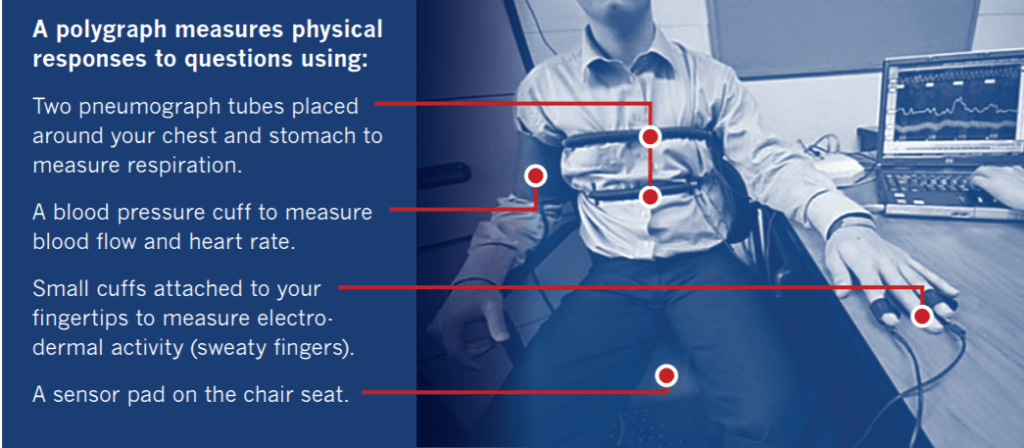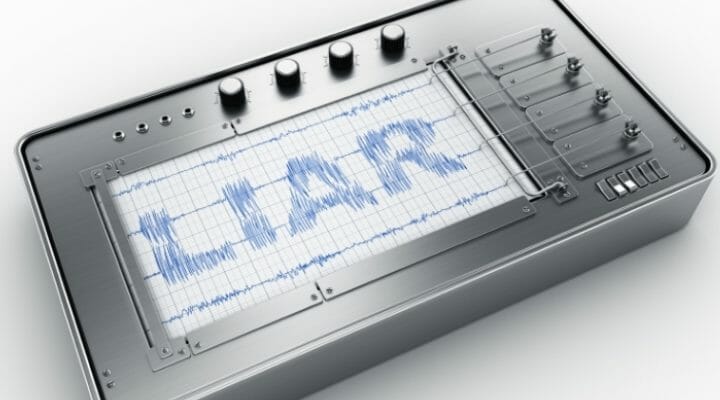Much about the clearance process resembles the Pirate’s Code: “more what you’d call guidelines than actual rules.” This case-by-case system is meant to consider the whole person, increase process security, and allow the lowest-risk/highest-need candidates to complete the process. However, it also creates a lot of questions for applicants. For this reason, ClearanceJobs maintains ClearanceJobsBlog.com – a forum where clearance seekers can ask the cleared community for advice on their specific security concerns. Ask CJ explores questions posed on the ClearanceJobs Blog forum.
In a process rife with mystery, snafus, and frustrations, one enigma reigns truly supreme: the polygraph examination. While not all cleared personnel are required to take a polygraph exam, those applying to work in the intelligence community often must face the machine. But like so many other parts of the clearance process, the polygraph exam isn’t a cut-and-dried science. And despite what the movies might tell you, it’s not a lie detector test. Many applicants do not receive a simple “pass” or “fail.” The test can be “inconclusive.” That’s where this week’s Ask CJ takes us.
So today was a loooooonnnnggggg day… I had my Psych/Poly today.
I failed the Poly (which I knew was going to probably happen)… the good thing is, I know when exactly I’m going back. The bad news is, I was nervous the entire time and the examiner kept trying to something out of me.
It’s a full scope CI/personal… the examiner said I was all over the place on both parts.
Is that normal? What’s the most you can take it?
This is a common scenario. But before we tackle this, it’s helpful to understand what the polygraph exam actually consists of.
So What Does the Polygraph Actually Do?
If you’re looking for an excellent primer on the security clearance polygraph exam, check out a ClearanceJobs resource called, “5 Rules for Taking a Security Clearance Polygraph.” It gives an easily digestible explanation of what the polygraph measures, common misconceptions, and guidance on how to take the test effectively.
As the paper explains:
The exam consists of:
Pre-Test Phase: Meet your polygraph examiner and ask any questions. Fill out a consent form and receive notification of your rights. Review all questions before the test starts. This is your chance to make sure you understand the questions, and that you’re able to provide accurate answers—use it!
In-Test Phase: After being hooked up to monitoring equipment, the examiner asks all questions and analyzes the results, which are fed from the sensors on your body into a laptop.
Post-Test Phase: If the test is inconclusive or deception is detected, you may be asked followup questions, or “problem” questions may be rephrased. You will not be notified of your results on the spot, but they will be reviewed by another examiner and you will be contacted later with the results.

The measurements of the polygraph examination.
One key takeaway to remember is that the exam is not a lie detector test. It measures your physical responses to factual questions; increased heart rate, increased respiration or perspiration can indicate evasiveness, nervousness, or deception.
However, heightened physical response in itself is not an indicator of deception. People get nervous during the test, could be having a hard or irregular day, or could be responding to confusing questions. This can often result in results being declared inconclusive – like the user above experienced. An inconclusive polygraph exam is not usually in itself cause for clearance denial. Polygraph administrators will often re-phrase questions if they are receiving inconclusive responses during the exam. If it’s declared inconclusive after the fact, the test will be re-administered.
How can I avoid an inconclusive polygraph exam?
First thing’s first: Just live your day as you normally would. Make sure you take all your regular medications, exercise as you normally do (or don’t!), make sure you eat before the exam. The idea is that you want to keep your body’s physical routine normal so it will not produce irregularities during the test.
Also, don’t be a “Guilt Grabber.” Oftentimes, some of the most reliable people receive inconclusive results on the polygraph exam. This comes from an overly-developed sense of guilt or nervousness. For example, if the administrator asks you if you’ve used drugs in the last 7 years, snorting Pixie Sticks in high school doesn’t count. Just answer the questions honestly and simply. Don’t over-volunteer information.
Remember, part of the exam is meant to ensure that the information on your SF-86 is honest and complete. Administrators depend on a level of intimidation in order to make that happen. “My professional opinion is that the government’s real motivator for use of the polygraph is scare value,” said Sean Bigley, national security attorney and managing partner of Bigley Ranish LLP. “The polygraph is more about getting scared people to admit what they would have otherwise omitted on their SF-86 than it is about actually digging up deception independently. Bearing that in mind, here is the reality: the scare tactic works subconsciously
on many people.” Don’t let it work on you.
If you’re concerned about taking your polygraph exam for the first or second (or third) time, 5 Rules for Taking a Security Clearance Polygraph is an invaluable resource. You will learn more about what to expect, how to prepare, and perhaps most importantly, how not to prepare. You can also post your questions or concerns on ClearanceJobsBlog.com.




